|
One of the things I love about Catholicism is that we celebrate the mysteries of our faith in a physical way. Going to Mass, kneeling, standing, singing, receiving the Eucharist, hearing and proclaiming the Word of God, experiencing community after Mass or at parish events. Some of our liturgical feast days even emphasize the physical contact between us and the Divine. Think of reverencing the wood of the Cross on Good Friday or participating in a Eucharistic procession on Corpus Christi. Our faith is incarnational, and our bodies are important conduits for worship. That’s part of the reason the last several months have been so difficult for so many. These physical elements of worship have been—largely—unavailable to us because of COVID-19 and the practice of physical and social distancing. Most of us have also been physically disconnected from our communities of faith, friends, and family. We’ve missed important events like birthdays, retirement parties, and even funerals. The emotional, spiritual, and psychological effects of this separation are very real and very serious. And it’s been clear from the outset of this pandemic that the Church must take action to alleviate the impact of isolation, despair, and loneliness caused by this pandemic. But who will lead the charge? I find myself asking, what is the Church going to do about it? How will we get through this? And then I realize, the Spirit is calling me. And, friends, the Spirit is calling you too. We’re not being called to wait around while someone else figures it out. God is calling us to figure this out together. We must remember that we are the Church on earth, and we are being invited by the Spirit to cooperate with God’s grace to take action and serve others, right now. We can’t simply wait for someone else to help. Those of us who are baptized are called to be missionary disciples and, ultimately, saints. And this call comes with a personal responsibility to recognize that all our lives are interwoven as branches grafted onto the Vine, as various parts of one Body (1 Corinthians 12). We are connected to one another through our baptism into Christ. Paul says, “The body is not a single part, but many.” And because of this interconnectedness, when one part suffers, the whole body suffers. So, we’ve got to do something about that, because we’re called to be “doers”. We are all suffering in some way during this pandemic. It’s not even possible to downplay that. And we all feel one another’s burdens. We especially feel our personal stresses and anxieties, day in and day out. I believe one of the answers to this anxiety and suffering is the beautiful work of spiritual accompaniment. The call to spiritual accompaniment is incarnational and based on the love of Christ. Spiritual accompaniment urges us out of our own interior world and presses us to walk with our brother or sister in whatever situation they might find themselves. Pope Benedict XVI says that God’s love for humanity is so strong that “it turns God against himself, his love against his justice” (Deus Caritas Est, 10). How, then, can we demonstrate a reflection of this great, personal love to one another if we can’t be physically present to one another? I believe we must be creative and find ways to communicate our companionship to one another in meaningful ways. We can allow ourselves to be challenged by these questions while we reflect on this topic: Do I have the ability to be present to my suffering neighbor in any way today? Do I have the capacity to do charitable spiritual accompaniment during this pandemic? I believe one effective way to spiritually accompany others as we remain physically distant is to ask challenging questions of others and engage in honest conversation. Though this may seem simple, “faith sharing” is a powerful way to be witnesses of God’s presence, and we all need to be reminded of God’s presence these days. I think there are two simple, penetrating questions that can start fantastic spiritual conversations that open our eyes to the great works of God. They are:
The answers to both of these questions reveal our hearts, our spiritual yearnings, our joys, and our sorrows; the answers to both of these questions lead us to recognize God’s presence among us, either by contemplating where we’ve seen God or petitioning His aid through prayer. I want to challenge you to invite a friend or someone you’re close with to consider these questions and then to hear their answers. Perhaps you’ll be surprised at the way the Spirit guides the conversation. I believe that through this simple practice of spiritual accompaniment, we will grow closer with one another, though distance or politics or ideologies may keep us apart. Loving and holy conversation is one way to begin healing the wounds caused over these last several months, and it is one way to accompany one another on the road as we travel strange, new paths together. To learn more about spiritual accompaniment, please click here. For more resources to deepen your faith during COVID-19, please click here.
0 Comments
Shifts in routines have a way of forcing us to reevaluate the purpose of our lives. When shaken from complacency, we start to ask questions of greater value: how do I spend my time, and with whom? What brought me joy today? What’s the purpose of my life? Where do I find meaning? As we continue to press onward in the midst of this global pandemic, I find myself asking these questions again and again. After prayer and reflection, I’ve come to realize I’ve worn many “masks,” and it took wearing a physical one to reveal them to myself. Prior to COVID-19, my work, my independence, my family, my social life, my community, my outings—these things and others gave my life meaning. They were my security blankets that helped me feel secure and often distracted me from some of life’s greater questions. None of these things are bad in themselves. All are good and fundamentally human. But, where our humanity often fails is in how much importance we give these temporal things. Does our occupation or social status or friend count lull us into a false sense of security or complacency? Do they make us feel powerful, independent, successful? Do they, in and of themselves, give our lives meaning? When I felt stressed or bored or unhappy prior to COVID-19, I could get a change of scenery at a museum or coffee shop. I could go to a store and buy something small to make my house more beautiful. I could go on a date with my husband or spend time with a friend. Many of these things were taken for granted, but as they become harder to accomplish or require much more intentionality and legwork, I’ve had to become creative in self-care and honest about where I find meaning in my life. First of all, I’ve had to sit longer with my feelings and allow myself to deeply feel my emotions. At various points throughout the pandemic, I’ve felt sad, anxious, frustrated, or lonely. Recognizing these feelings as legitimate and naming them has enabled me to better process what I’m going through and revealed to me what’s most meaningful. Many distractions have quieted down and enabled me to reflect on my life and mission. Who am I when I am not bouncing around from one mom group to the next? Who am I when I cannot organize and host events or gatherings? Who am I when I can rarely go to a store or go to get groceries? I am many things: a wife, a mother, a daughter, a writer, a sister, a friend. But most importantly, I am a Christian—a beloved daughter of God. When so many good and beautiful things that I relied on for purpose are rendered skeletons, I’ve had to relearn to rest in this true identity. I’ve found that God is asking me to place the purpose and meaning of my life not in these temporal things, but in his hands alone. I am not worthy of his salvation because of my degrees, my writing, my work, my friends, my connections, or my home. I am worthy of his salvation because he made me. Because I am his. Because he looked at me and said, “It is good” (cf Gen 1:31). What is much harder than the initial shock of any given change is often not the change itself, but the continued life thereafter. I find it much more difficult to persevere. Pressing on in what can seem endless and mundane seems overwhelming. For many of us, getting out of bed may be the biggest achievement of the day. I have to take my life and my new reality day by day. And I’ve noticed how this correlates to the journey of sanctity. A moment of conversion or change is just the beginning—a sustained life of faith, lived and chosen in each moment of each day, is the stuff of saints. It is the quiet, hidden path—the one Mary lived so long and so well—one of seeming insignificance or ordinariness that ultimately can mean everything. This time of uncertainty, lived with charity and faith, can be our foundation for holiness. As human beings, we long to be fully known and loved. These are our greatest desires. But we walk along with invisible masks that obscure our dignity, often preferring wearing them than to being seen face to face. We try to justify God’s love, or earn it, or excuse it, or dismiss it. What I’m learning more deeply as a result of this pandemic is that I am loved in spite of all these things. I am loved regardless of who I know, how full my schedule is, what I own, how successful I am. As I stay home yet another day, sustaining the life of a small but beautiful family and cultivating a domestic church, I am reminded that this--this is worthy and sanctifying. My Mount Tabor can be my own home. And I can be transfigured. During this time of wearing a physical mask to keep ourselves and others safe, I invite you to reflect on the invisible masks that you may be hiding behind. Where do you find meaning? What makes you feel secure? Where do you turn in times of hardship or suffering? During this season, may you have the courage to allow yourself to meet Christ’s gaze face-to-face. If you enjoyed this post, we invite you to read “New Normal: Adapting to Life During COVID-19 and The Grace to Suffer Well: Persevering During COVID-19” In high school we had a religion teacher, named Mr. Matthews, who used to tell us not to worry about memorizing anything from his class but these words: “Love God with your whole mind, heart, soul and strength. Love your neighbor as yourself.” He would say, “If you come back and see me twenty years from now, I’ll be happy if those words are all you remember.” Mr. Matthew’s motto was inspired of course by Matthew 22:34-40, which happens to be today’s Gospel reading for the [Optional] Memorial of Saint Louis of France. In this text, Jesus clarifies that love of God and love of neighbor are the two greatest commandments on which everything else depends. To put in another way – without love, we are nothing (1 Corinthians). The pandemic has shown just how much we need this love in our world. And while it may be challenging to connect with one another right now, there are still ways we can share love with others from wherever we happen to be. Three Small Ways of Loving God
Three Small Ways of Loving Neighbor
Remember also, we are called to “love your neighbor as yourself.” During this unique and challenging time, are you taking care of your own spiritual, emotional, and physical needs? If you aren’t sure, it may be worth spending some time today writing down a short list of ways you can practice healthy self-care. If you liked this article, be sure to check out “Living the Corporal and Spiritual Works of Mercy During COVID-19” and “Mental Health and Coronavirus.” In the past few months, most of us have had to confront loss. Some of those losses have been very visible and salient, costing us our jobs, loved ones, and financial security. Others have been less tangible, and yet still impact large parts of our lives: important events have been placed on hold or canceled, relationships have been strained due to distance, and the feeling of having things to look forward to has dissipated. In the aftermath of stay-at-home orders and the pandemic, those of us with these less visible losses might find ourselves minimizing the pain or disappointment we feel. We might compare our smaller losses with those who have undoubtedly encountered more suffering than we have. We may feel that compared to others who have lost jobs, loved ones, homes, or security, we have no right to feel sadness, anger, or disappointment. We might even be preventing ourselves from experiencing grief. Grief is something natural to our human journey. Like other emotions and emotional processes that we experience as human beings, grief provides us with information to our minds and bodies so that we can survive. In the face of loss, grief serves the purpose of communicating to us that we have encountered a lack of something that was formerly present and available to us. Whether it is the loss of a loved one, job, role on a team or in a workforce, friendship, feeling of security, or a sense of hope, grief helps communicate to us what is most important in our lives. In other words, grief helps inform us regarding what we set our hearts on and what brings us joy and safety. Grief not only touches the realm of the emotions and the psyche; it also is essential to our faith tradition. In Scripture, the words of grief are especially echoed in the psalms: “My tears have been my bread day and night, as they ask me every day, “Where is your God?” Those times I recall as I pour out my soul, When I would cross over to the shrine of the Mighty One, to the house of God, Amid loud cries of thanksgiving, with the multitude keeping festival. Why are you downcast, my soul; why do you groan within me? Wait for God, for I shall again praise him, my savior and my God.” (Psalm 42: 4-6) We even see Jesus grieve several places in the Gospels, such as at the death of his friend Lazarus (John 11:35), and even at the suffering he was to experience to carry out our salvation (Luke 22:44). In Catholic funerals, we name and acknowledge the reality of grief in our prayers during our liturgical rites—an important part of believing in and living with Paschal hope. Grief is not just an emotional process for death or large losses. While it is important to keep a clear perspective about the magnitude of the losses we experience in comparison to the suffering of others, grieving the less tangible and visible losses we experience is an important step to healing and cultivating our mental and emotional health. Additionally, ensuring that we allow ourselves to experience grief, even in response to comparatively smaller losses, can help us grow in holiness. Experiencing grief can help us to find new meaning in our faith, deepen our relationship with God and others, and continue to grow in knowledge of ourselves before God. So, how are we to allow ourselves to grieve the smaller losses we have experienced in recent months? What are some ways to grieve the rescheduled or canceled graduations, weddings, and festivals, or the lack of opportunity to do the things we enjoy or to spend time with people whom we love? Emotional Processing vs. Emotional Bypassing Instead of dismissing ourselves or invalidating the emotions we are experiencing (also known as emotional bypassing), we can allow ourselves to grieve more fully by feeling our emotions and asking questions about what we feel, otherwise known as emotional processing. For example, instead of dismissing how we feel by thinking, “It could be worse!”, it is more helpful to our healing to ask questions such as “What is my sadness and anger telling me about what I love or what’s important to me?” In acknowledging our pain and asking ourselves questions about how we feel, we can grow in self-knowledge and self-understanding about the way in which God has created us. We can also engage in processing with a trusted friend, mentor, or mental health professional. Allowing Physical Release Grief, like other emotions and emotional processes, makes itself known in our bodies. Physical pain, muscle aches, clenched jaws, and a racing heartbeat can all be caused by grief, stress, and anxiety. It is important to process these emotions physically so that they do not remain stuck in our bodies. Breathwork, exercise, crying, and movement allows us to feel grief and allow it to process through our body. Journaling, since it requires movement of the hands, is also a helpful tool for engaging grief through our bodies. Authenticity in Prayer We are the beloved children of God; God looks upon us with love, care, and concern with whatever we bring to prayer. Talking to God honestly about our disappointment, sadness, or anger brings us closer in relationship with God. In prayer, God is not judging us for what we do or do not say. For this reason, we can be totally authentic with God in prayer. We might feel like we should have a different emotional response to our losses from what we are experiencing, but God’s love is unconditional and infinite: we don’t have to worry about appearing perfect before God. Grieving the large and small losses of the last few months is not only important, it is human. How can we enter more deeply into our grief to find healing? What in our lives do we need to grieve?
 This Easter season, I have been thinking a lot about my late brother Tim, who died in an accident seven years ago - at the age of 24 - while serving as an EMT in Indianapolis, IN. Tim’s death, along with the death of his IEMS partner Cody Medley, left all their friends and families at an inestimable loss. While I never got to meet Cody personally, I have learned that he was an exceptionally driven and talented young person who also served as a fire cadet before becoming a paramedic. Tim’s story is not much different; he was an Eagle Scout and volunteer EMS before going professional and passing his paramedic certification shortly before he died. In life, Tim achieved success in almost every field. As a teenager he won academic and musical scholarships and posted regular five-minute miles in outdoor and indoor track. He mastered Mandarin and spent an immersion summer in Shanghai. He participated in a service trip to Jamaica and volunteered back home as a “running buddy” alongside students with special needs in Central Park. These successes, paired with his later commitment to the medical profession, truly made him “A Man for Others” – the Jesuit motto of his alma mater, NYC’s Regis High School. Only looking backwards have I come to appreciate how brilliant Tim was. Perhaps you have a similar person in your family – someone who is so smart that they are intimidating. Tim was fearless in challenging others (especially those in authority) when he thought they were wrong. I have thought of him throughout this entire pandemic. As a first responder, I know that he would be helping wherever help was needed. As the outspoken person he was, I know he would have choice words for those he felt were ignoring public safety protocols. And most of all, as a cuttingly funny person, I know he would help me laugh during this time. Tim died three days into Lent, on February 16th, 2013. I have remembered him especially during every Lent and Easter since then. This past Lent was perhaps the most difficult yet. Many say that it takes seven years to heal from losing a loved one. The year 2020 marks seven years for all who loved Tim. To me, I felt healing – which also meant letting my guard down to feel fully the pangs of loss I couldn’t afford to feel in 2013. The coronavirus situation, if nothing else, has clarified the relationship between life and death. We are all vulnerable humans. This can be a scary thought, but also a freeing one. This can be a time to meditate on life as what it is – a short chance to grow, love, and serve others. We do not know how long the journey will last. I sometimes think that my brother attacked life the way he did because he might have sensed that he had less time than others. He used to wake me up after midnight, for instance, after I had already gone to bed, and say “Come on bro, get up, let’s make some memories.” At the time I thought he had a screw loose. Now I think he was prophetic. Recently in the Gospel readings, we hear Jesus tell the disciples, “Peace I leave with you; my peace I give to you. Not as the world gives do I give it to you. Do not let your hearts be troubled or afraid.” These words are a balm to all of us who have experienced loss, or who fear loss during these challenging times. As I read this passage, I am touched by the care and concern Jesus shows for his followers. He is also being quite honest with them and reminding them that they will lose him. The promise of peace is made realer by the reality of loss. This is what I receive from today and feel to be true in my own life. One year after Tim’s death, on Easter Sunday 2014, my family went to Mass in a church we had never been to before. The previous year had been difficult for everyone. Personally, I had not been taking care of myself mentally, physically, or spiritually. In the prior twelve months, I had not felt anything approaching peace. I was experiencing great fear and having awful panic attacks. That morning, sitting in the pews, waiting for Mass to begin, I suddenly noticed all sound around me fade out. I felt a sensation of all the breath leaving my body – and then my next breath was a slow, purposeful breath that was like drinking cool water in the desert. I was able to begin breathing in a deep and rhythmic way. Over the next few minutes, I felt as if warm light was streaming over me, from the head down. It was a feeling of complete release and relief. Ever since, I’ve been hoping to feel that peace again. Like my brother, I doubted (and still doubt) aspects of my faith. Tim wrestled to understand people who believe that faith and the intellectual life are incompatible. Being the true original that he was, I think he found it difficult at times to imagine a place in Christianity where he fit in. Yet after his death, I learned that some of Tim’s recent writings and reflections expressed the faith of a mature man who trusted in a loving God. I reflect on his words often as I remember my “kid brother” - who responded to numerous life-or-death situations and treated severe injuries which I would be terrified to walk into. Like everything else, Tim’s faith journey happened at a rate and intensity that most of us will never know. As Easter moves on and we navigate the new normal that is COVID-19, my spiritual suggestion (for what it’s worth) is this: In your prayers, dreams, and doings, try to let fear and hope co-exist. I will try to do the same. If we can hold those two seemingly irreconcilable opposites, we may find that peace can sprout like a flower right in between our hands. This current COVID-19 crisis has shaken up the end of the semester even more than most students could have even imagined. Since my university went online through the rest of the semester, so much has changed: events and programs that were being planned since last school year have been canceled; fun outdoor adventures with the onset of spring are postponed; classes have transitioned to completely online settings. The way I would best sum up this time is unexpected significant change. But this change can lead to many ways of unexpected growth while adjusting to this new normal for the foreseeable future.
These couple of weeks adjusting to the world of online classes has allowed me to take some time and reflect on the past, present, and future. In college, time seems to fly and changes that occur over time sometimes just seem to pop up. Yet in these weeks of change, time hasn’t been flying by, and things aren’t happening as smoothly, but that’s okay – it’s perfectly fine if adjusting to this new normal takes longer than it may have at college. In my reflecting, a few thoughts stuck with me as particularly helpful in this unexpected journey:
From the time this COVID-19 pandemic first began to alter life in February, one particular prayer has been an unending source of peace for me. It is called the Serenity Prayer: “God, grant me the serenity to accept the things I cannot change, the courage to change the things I can, and the wisdom to know the difference.” Jonathan Harrison is a Program Associate for the Catholic Apostolate Center and a student at The Catholic University of America studying biochemistry and theology with a certificate in pastoral ministry. Today is the optional memorial of Sts. Cosmas and Damian, who were twin brothers born in the third century in Arabia. Both Cosmas and Damian became physicians, and in true Christian charity, refused to accept payment from their patients. During the persecutions under Roman Emperor Diocletian, the brothers’ renown in their Christian community made them easy targets. They were imprisoned and tortured by various means in an effort to force them to recant their faith, and after surviving most of these tortures while remaining true to Christ, Cosmas and Damian were finally beheaded.
What draws me to the story of Sts. Cosmas and Damian is not only their adherence to the faith while under excruciating torture, but also their unfailing generosity to those around them. They tended the sick in their community and did so without asking for or taking any monetary compensation. I like to think this was because they were often helping sick people who were also too poor to afford a physician in the first place. Generosity is a virtue that can easily be motivated by pride—we do good things for others, secretly hoping to get accolades or some kind of reward for being so self-giving. But I think generosity is really about giving to others —material, spiritual, or emotional—because you know the other will benefit, even if there is no compensation for you in return, or if (like Cosmas and Damian) you refuse to take any. Generosity is not only exemplified by a wealthy man donating money to charitable causes, nor only by going on mission trips to help those in poverty, nor is it demonstrated by showering poor children with gifts at Christmastide. We can cultivate the virtue of generosity in ourselves much closer to home and on a daily basis—just as St. Cosmas and St. Damian did. Generosity is lived out by a talented musician volunteering at his church to worship God in song, or by a mother who prepares and brings home-cooked meals to other families in her parish who have a new baby or have had a recent surgery. There is also spiritual and emotional generosity: being present and available to our siblings, children, parents, or friends as they struggle with transitions or discernment. When we engage in these acts of generosity, we serve Christ by serving others—even if it is not necessarily a sacrifice for us to do so. (Although I know for myself, the sacrifice that comes with being generous is striving to be selfless in my generosity and not to expect or desire reciprocation.) We are called to use anything that we have been given in order to glorify God. And what about those—presumably poor—people that Sts. Cosmas and Damian healed and treated? Who knows what kinds of generosity they were able to offer to their benefactors as a result of their encounter with the twin saints? Maybe they were generous in their prayer lives and interceded for the physician brothers. Maybe they were inspired by the generosity and faith of the two saints and went on to assist others in their community. Even if we cannot always be materially generous to each other, giving of ourselves in any capacity can cause a ripple effect of generosity throughout our communities. We can also learn to support and foster the generosity of others by thinking about how we respond when we are offered someone’s generosity, whether we asked for it or whether it was volunteered to us. Personally, I am working on asking for help or accepting generosity with humility. I know that I am less likely to help someone if they repeatedly protest my efforts or insist that I am doing too much, and therefore I try not to protest or downplay the good work that someone does for me. I try to remind myself that by serving each other, we are ultimately serving Christ. Questions for Reflection: Have you ever been the recipient of an act of generosity that changed your life? How so? As a PhD student, there are often many moments where I find myself buried under work, exhausted from studying, and wondering if subjecting myself to a five year program of studying, teaching, and writing is worth it. Although I love what I study and find it extremely life-giving, there are plenty of moments when I’ve felt hopeless, isolated, and anxious about a future career in academia. This past year, I found myself struggling in the midst of my third semester in my program. I felt emotionally and mentally exhausted by the demands of being a second-year student and teaching assistant. Frustrated, worried, and tired, I made an appointment with one of my professors, hoping that venting to someone who understands the challenges of academia might at least help somewhat. As I vented about my anxieties of being an effective teaching assistant, distinguished student, and successful future academic, my professor patiently listened. Even as my concrete worries about grading and lecturing for the first time began to turn into catastrophizing about never being hired at a college or university, my professor sat with me until I finished talking. She never minimized my feelings or invalidated my emotions. Instead, she shared with me her own challenges that she faced as a graduate student. Through stories about her own experiences, she admitted that she had been where I was, too. My professor didn’t let the conversation remain at a place of despair; she instead encouraged me to look at the bigger picture in all of these difficulties: God’s plan for each of us. She challenged me to think about my own vocation to be a graduate student and reminded me that it was God’s will that I was here. My professor helped me to see that despite my anxiety and worry, I was not alone. Not only did I have her support and the support of others at my university, but my present and future rested in the hands of my Creator. She also helped me notice places in my life where I was successful, and suggested places where I could become stronger. After talking about my strengths and areas of improvement, she offered advice, pointed me to other people that might also help, and offered to continue the conversation whenever I needed it. I left encouraged, feeling supported, and with a new perspective on my life as a graduate student. When I first scheduled my meeting with my professor, I had only expected to give voice to my worries to someone who knew what I was talking about; however, when I left my meeting, I felt that I was no longer walking alone on my path. My professor was walking with me, accompanying me on my journey as a graduate student. Upon later reflection, this moment of accompaniment shared with my professor reminded me of Jesus’ own style of accompaniment on the Road to Emmaus (Luke 24:13-35). Like the disciples who were dejected, disillusioned, and confused about the events that had taken place in Jerusalem surrounding Jesus’ death, I too was anxious about my own life as a graduate student. My professor offered a presence of patient listening, even when my worries began spiraling into despair. Instead of invalidating my response to the challenges of my life, my professor, like Jesus, “drew near” (Luke 24:15) to me by sharing with me her own difficulties as a graduate student. My professor also helped me to shift my perspective. She imitated Jesus on the Road to Emmaus by reminding me of God’s role and plan in my life, encouraging me to look beyond the challenges of the present moment. Finally, my professor helped me to remember my own sense of mission and vocation, and move actively towards them. As Jesus interpreted the scriptures with the travelers on the way (Luke: 24:27), my professor assisted me in reading God’s revelation in my own life through my strengths and weaknesses, encouraging me to develop and strengthen my gifts in order to respond to God’s call. As Jesus walked with the disciples towards a definitive direction, my professor was walking with me towards a certain goal: greater trust in God and more freedom from anxiety in order to live out my vocation. After this moment of accompaniment with my professor, I continued on my path as a graduate student with a new sense of support and encouragement. Like the disciples after their own powerful encounter of accompaniment with Christ, I too returned to my own mission as a graduate student, but with renewed hope and enthusiasm. My experience of being accompanied by my professor made a significant impact on the way I think about my own life and vocation. In that simple meeting, my professor reminded me that no one lives out their vocation and personal mission in isolation. Instead, we need one another on this pilgrimage towards full realization of being the beloved of Christ. Accompaniment allows us to walk together towards Christ; it turns the challenges of the journey into opportunities to discover God’s love with and through one another. Who might accompany you on your journey towards Christ? How can you accompany others through challenges that you’ve faced? For more resources on mentorship and accompaniment, please click here.
The authentic Christian life resounds with love. Beyond any fleeting attraction or fondness, this love is not meant to be hoarded, but to be given in charity and service to others. The love of a Christian reflects the love of God, without Whom we would not exist nor would we have the capacity to love beyond the other, lesser creatures of this planet. This love cannot be restricted to a single day on the calendar but is meant to flow freely every day at every hour through every difficulty and joy, every sorrow and labor, and every moment of pain and peace. It is love which motivates us not only to live for others, but always for the glory of God.
Normally, the marital love between a man and a woman manifests and literally takes on new life in the conception of a child. That child adds another wonderful dimension to the love of married life that encompasses parenthood. Years of teaching, correcting, protecting, caring for, playing with, cherishing, and feeding children are physical and emotional applications of love purposed with raising them as members of the domestic church. Eventually, the outpouring of parental love for children can be reciprocated by them in selfless acts of charity, gratitude, joy, or other expressions of affection. Think of the times your parents would beam at seeing your room tidy without asking, warmly embrace you, offer a surprise gift, or watch you shine at school or on the field. Similarly, the example of love shown between parents is not lost on children. This example imprints the strength of the sacrament of marriage—especially during times of difficulty or stress—and encourages children to better appreciate and actively participate in the love of family life. For example, chores or other labors may be done more freely as intrinsically valuable to the functioning of the domestic church; without love, children might only begrudgingly pick up after themselves when forced. How does love otherwise radiate through family life? The eyes which looked upon the spouse on the wedding day can continue to hold the same gaze of awe-filled love through later moments of despair or pain. The hands which exchanged wedding rings can embrace one another with tenderness, consolation, joy, or mercy. They can also be used in service to the poor, the lonely, or the dying. The lips which uttered sacred vows can impart wisdom, praise, blessings, or part in radiant smiles. Just as God lovingly created the human body down to the smallest detail as “good”, so too can the body we have been gifted be utilized to facilitate God’s love among loved ones and neighbors. Perhaps the first lesson your parents taught you was that God is love. By virtue of our baptism, we have become adopted sons and daughters of our Heavenly Father. As such, every answer to our prayers is entirely out of love, regardless of the result. Similarly, our parents, having been entrusted with caring for us, draw upon the love in their marriage to instruct, guide, nourish, or chastise. While our parents’ love may be imperfect, we can look upon the perfect example of the love of the Trinity to shape our applications of love to transcend human limitations. As St. Paul famously wrote, “love bears all things, believes all things, hopes all things, endures all things.” If it did not, how could any of us be forgiven for our sins against each other or God? How would salvation history exist without love? Authentic marriage or family life is not sustainable without love. And yet, our human limitations may restrict our application of love in certain circumstances. That is why love must be renewed. It must deepen over time to reflect the experiences of life and extend to others. Couples may go on date nights, retreats, vacations, or other activities which can foster relaxation and various communications of love. Similarly, we are reminded of God’s love at each Mass, in which recalling the ultimate Love on the cross helps us receive spiritual renewal to offer that same love to all we encounter. The spiritual renewal we attain allows us to recall the presence of God in our daily lives at every moment and to live up to the potential He calls us to. If our vocation is religious life, then we can hold steadfast to the rules of the order to which we belong and rejoice in our sacred calling. If we are single, we can allow ourselves to increase our capacity to love or extend it to others. If we are married, we can reaffirm the gifts of love in the family— raising children in the Faith or cherishing our spouse. In doing so, we realize that love does not come from ourselves. Rather, God, the source of all love, dwells in our hearts and provides the strength and courage to open ourselves in vulnerability to another. Our love may be spurned, mocked, or tested, but just as God will not refuse His infinite mercy to the hardest of sinners’ hearts, so too are we called to rise above human judgements or inclinations and extend to others the great gift of love God Himself never tires of bestowing. Question for Reflection: Who are some examples of authentic Christian love in your own life? For more resources on Marriage and Family, please click here. What does it mean to be a faithful Catholic? We are often quick to answer this question with things like Mass attendance, frequent confession, respect for all life, serving the poor and vulnerable, and advocating for those without their own voices. In other words, we might answer this question with action verbs, or phrases that suggest doing. However, identifying as a Catholic requires just as much being as doing; as Catholics, we are called to be in right relationship with God, others, and ourselves. Being in right relationship means that in all parts of our lives, there is an order to what we do, love, desire, value, and move towards; this order is one that is rooted in God, sustained by constant conversion to him, and ultimately fosters lasting communion with him in this life and the next. There are many things in our lives that prevent us from being according to this pattern and order. For many of us, things like tragedy, addiction, animosity, violence, mental illness, polarization, and trauma have weakened our trust in God and the goodness of others. Our hearts can be exhausted by divisions within our own families, numerous transitions in our careers or geographical locations, failed plans and dreams, and the restlessness that comes with the seasons of waiting in our lives. Sometimes, we find that our hearts have become worn down and afraid in all that life has asked us to carry. Like illness or a disease, leaving these wounds of the human condition untreated poses a hazard to our being. Trying to live out our faith without seeking some form of psychological and emotional healing for these wounds causes our views of ourselves, God, and others to become distorted, preventing order and harmony from forming in our lives. Untreated emotional and psychological injuries and pain show themselves in the ways in which we seek to serve God and others. We sometimes put up “walls” around our hearts and push others away because we’ve been so damaged by close relationships. We might become obsessively self-interested because we see our value and dignity only in relation to our careers and material success. We might see God as angry, malevolent, and seeking retribution because we haven’t forgiven ourselves for our past sins or mistakes. All of these feelings and responses are part of being human. Thankfully, because they are part of being human, they can be healed and redeemed. This is why it is crucial to form ourselves not only spiritually, but also through emotional and psychological healing. The parts of us that have a large role in being - our emotions, mental state, and psychological health - are invaluable to living out our vocations to holiness. We cannot give life, love, and mercy to others if we don’t first have a sense of those things within our own selves. Certain tools can help with this type of human formation: conversations with trusted and wise friends, support from a mentor, spiritual direction, counseling, and therapy. As Catholics, it is important to reflect often on the journey of our lives, look at the cuts and scrapes we’ve acquired along the way, and participate in God’s healing by seeking tools that foster our ability to be. It is through the nurturing of our being that we are then able to bring life through our doing. As Catholics, we are part of a Church that calls us to “go forth” to serve God and others. Individually within our hearts, what kind of place are we “going forth” from? One that is broken and acts out of insecurity, self-interest, anger, or pain? Or one that is undergoing healing, characterized by a desire to live in the freedom of God with others? What kind of healing might we be called to seek?
As I write this, the weather is gray and cold. It has been raining for what feels like forever, though more accurately it’s been about a week. I miss the summer. I miss a lot of things, and people, when October rolls around. It seems to be a month made for melancholy. Perhaps it is because two of my grandparents died during separate Octobers in my childhood. This month has always been a time of missing them, remembering the past, and grieving. I was eight the October my paternal grandmother died, and she was the dearest person in the world to me. Grief is a word we use to describe the feeling of missing someone or something after they are lost to us forever. We grieve days that are behind us, relationships that never grew, opportunities that we missed. But most of all, we grieve persons. Death seems to be the end of all that is, the end of all who is. It is unbreakable, unbreachable, unending. As Christians, we do not think in those terms because they have been proven false. Jesus Christ, as well as Mother Church, tells us that death is not the end. It is an act of hope to believe this. Death only appears to be final and absolute and unknowable. Through Christ’s resurrection, God has revealed that death is not our final end. It is often hard for us to trust what happens next because we simply cannot know it with the certitude with which we know this world. The Church speaks of the Four Last Things, with Death being the first or entryway to the other three: Judgment, Heaven, and Hell. But that is another topic. What about those of us who remain on earth while a loved one has gone ahead? What do we do? How do we live with loss? C.S. Lewis told a friend who had recently lost his beloved wife, “Sad you must be at present. You can’t develop a false sense of a duty to cling to sadness if– and when, for nature will not preserve any psychological state forever– sadness begins to vanish” (A Severe Mercy, Sheldon Vanauken). Of course we feel sad as a result of someone’s death. A loved one who brought joy and lightness into our hearts has gone, and our sadness is a natural response. There is no Christian commandment forbidding sadness. It is an emotion, which is neither good nor evil. Emotions just are. They come and go, washing over us. If we choose to take them too deeply within ourselves, however, emotions can become dangerous. We can drown in grief, for example, if we make it our cosmology. And the Christian is commanded to have the same mind as Jesus Christ. He sees the world with the eyes of resurrected love. While we may not always be able to choose our emotions, we can choose our attitude and our response to them. Joy, even in the midst of sadness, “comes of being loved” wrote Pope Benedict XVI in Deus Caritas Est. And love has conquered death in a singular act. Jesus, the Christ, the Second Person of the Trinitarian Godhead, the Son of the Father, died on a cross to redeem us from an unredeemable bondage because he loved us and desired us to be with him. It is to that reality that we must orient ourselves. Grief can too easily turn us inward. Like a black hole, it can devour everything surrounding it so that it is the only thing left. Love perpetually calls us out of ourselves, and asks us to give ourselves as a gift, even and especially in the hard times. I do not doubt that God’s heart broke when humanity sinned the first time, and breaks again at every subsequent sin. But God did not become consumed by grief at our fall. God is love, and love gives of itself to the beloved unceasingly. Therefore, God acted in order to redeem mankind. I want to tell you more about the process of grief, of going through the stages of denial, anger, bargaining, depression and, finally, of reaching acceptance, but I don’t know your process. I don’t know your specific loss, which we all must face at various times of our lives. That’s okay. We can hold a space for each other as we go through the process of grieving. We can let each other remember and smile and laugh and cry and long for the missing one, repeating this process as necessary. As a recent homily reminded me, our God does not tolerate idols in our lives. Our grief cannot consume our love, or else it makes a golden calf of our beloved. May our love of God, united with the love our dearly departed, orient us to the loving heart of the Father. May we know that this present sadness is not the end. Question for Reflection: Have you grieved the loss of something in your own life? How has your faith impacted your experience of grief?
"Good morning and welcome! Today, we celebrate the Xth Sunday in Ordinary Time. Please stand and join in singing hymn number…" Most of us will hear these words, or words very close to them, for over thirty Sundays a year. After the joyful season of Christmas, it can seem too ordinary, almost boring, to return to Ordinary Time in the Liturgical Year. Instead of the extraordinary stories of Christ's birth in the Incarnation, we've gone back to the Jesus stories many of us grew up hearing: Jesus healing lepers, chastising Pharisees, and preaching to crowds. While Jesus’ ministry is anything but ordinary, our familiarity with the stories of the Gospel often desensitizes us to their extraordinary depth and power. It’s much easier to see the seasons of Christmas and Easter, as well as Advent and Lent, as extraordinary. They're special seasons of the Liturgical Calendar, set aside to celebrate and reflect on the greatest mysteries of our faith: the Incarnation and the Passion and Resurrection of Christ. These liturgical times make us feel our faith in a more visceral way. There's nothing like the gut-wrenching Passion narrative or the beautiful story of the Nativity to set our hearts ablaze for Christ! But if our experience of the Christian faith was nothing more than an emotional high, we would never be able to see Christ in anything but the heavily emotional experiences. That's what Ordinary Time gives us: it sustains our faith between the emotional highs and lows of Christ's birth, death, and resurrection. It reminds us that God is often most present to us in our ordinary humanity. May we not forget that Christ himself lived ordinarily for thirty years as a carpenter’s son in Nazareth. It's in Christ's day-to-day ministry that He meets people where they are and experiences the human condition with them. When He forgave the woman at the well, it wasn't at a big celebration, but in the very ordinary act of gathering water. When He called Zacchaeus down from the sycamore tree, all He wanted to do was share a meal. When He flipped the moneychangers' tables at the Temple in anger, He was there for the weekly observance of the Sabbath. Ordinary Time isn't about the humdrum monotony of life. It's about the slow, incremental action of the Holy Spirit in our lives. It's about, as St. Vincent Pallotti said, seeking God in all things. Just as we get up every day and go to work, we are called to use Ordinary Time to get up every day and give our best to God. So what can we do to live Ordinary Time well? The options are endless! —Maybe you like studying Scripture, but don't know where to go deeper? Take a look at the practice of Lectio Divina. —If you feel a strong draw to the Liturgy, try attending Daily Mass once a week or following the Liturgy of the Hours. —Do you sense a call to serve more with more intentionality? Explore the needs in your community. It doesn't have to be a Church ministry to be service! After all, we're given the instruction to "Go forth!" at the end of every Mass. The beauty of our faith is that there are so many ways to experience God in our lives, to connect with Him and bring His message of love to the world. It doesn't matter which way we choose to work on our relationship with Him, so long as we do so with intention. A healthy challenge for us all might be to pick just one practice to begin making into a habit during Ordinary Time. May we invite God to shift our perspective on the “ordinary” and help us see His extraordinary presence and grace in our journey of faith! Working in parish ministry can be extremely rewarding, however, it can also become consuming and drain you spiritually, physically, and emotionally. We live to serve, love to create and often times find ourselves at the battlefront of spiritual warfare. Take a moment to ask yourself honestly, “Am I taking time to replenish myself?” It can be difficult to take a step back and focus our time and energy on our own revitalization. We get so used to giving of our time and ourselves to the work of the church that we may feel guilty if we turn those energies on ourselves. We all know the physiological and psychological benefits of exercise. Is it possible to reap a spiritual benefit? 1 Corinthians 6:19 states that our body is not our own. I am a firm believer that degradations of the soul and body affect one another. 1 Corinthians 6:13 teaches us that the body is for the Lord and the Lord is for the body. Although the health of our interior spiritual life should always take precedence over everything, I urge you to keep the health of your corporal life, your bodily life, a close second. In both the Nicene and Apostle’s Creed, we profess a belief in the resurrection. But do we live out that belief? Our salvation story as the adopted sons and daughters of Christ is not over yet, including the story of our loved ones that have fallen asleep in Christ. We believe in a second coming. We believe that when this earth passes away, we will be united, body and soul, into heaven if we have attained sanctification. We, as the body of Christ and communion of saints, are still in this together. Do we continue to pray for the dead outside of Mass? Do we implore the saints and angels for help and intercession? Do we offer daily mortifications and prayers for the salvation of souls? What about ourselves? We just recently celebrated All Saints Day and All Souls Day. I would like to present a challenge to you. Regardless of whether you are a disciplined exerciser, just beginning, or struggling to get back into the habit, turn your intention and your purpose to the salvation of souls. Schedule this time into your day just as you would an appointment or your personal prayer time. When you take your walk, follow your workout DVD, lift weights, go swimming, whatever medium you choose for your exercise, mentally offer this sacrifice of your time, energy, and focus for the salvation of souls. When you feel like there are one thousand other things you should be doing with your time, remember why you scheduled it. When you start to get tired during your workout say to yourself, “Lord Jesus have mercy on me and all souls in purgatory.” Uniting the discipline of our exercise with a prayer intention as powerful as the salvation of souls, strengthens your body and mind so that you can better carry out your calling on this earth. Through this purposeful action, you are also imploring God to grant relief to the poor souls in purgatory. So my fellow ministers, yes, give of yourselves unceasingly but be aware of the ways that we can still give of ourselves while nourishing, strengthening, and reenergizing our body so that we are better focused and able to carry out our calling on this earth so that when our day of judgement comes we can hear the sweetest of phrases uttered from the lips of our Savior, Matthew 25:23 “Well done my good and faithful servant.” As I wrote this post, the Catholic University of America was preparing to celebrate Homecoming, when over 1,500 alumni and their guests returned to their alma mater. The weekend itself is a joyful occasion, a chance for classmates to catch up with one another and see what has occurred in the time since graduation. While life often takes alumni down different paths, Homecoming offers everyone the opportunity to reconnect with the place that, and the people who, helped launch the next chapter, whether it was one of service, religious vocation, family life, and/or employment. Homecoming itself reflects the willingness of the University to throw open its doors to welcome back all, no matter how long they’ve been gone or why they stayed away. It’s a tried-and-true model and it’s along these lines that the Church opens her doors to those who might have fallen away, whether because of a poor experience or because of a lack of interest or engagement. Initiatives such as “Catholics Come Home,” or the Archdiocese of Washington’s “The Light is On For You,” and similar diocesan programs nationwide, seek to welcome back Catholics who have been absent from the life of the Church. The projected tone and nature of these programs is of authentic openness and welcome — free of any judgement or bitterness. The goal is to encourage those who have been away to re-encounter the perfect love and understanding of our Lord as manifested and offered by His Church. The doors of the Catholic Church are open year-round for those seeking something better than what the world offers but there are moments in the liturgical calendar which emphasize and focus on refreshing one’s spiritual life such as Advent and Lent. Similarly, the invitation to participate in or observe the sacraments being celebrated can be an emotional catalyst for one to come back or renew his or her baptismal promise. Emotions, such as the awe of witnessing a reverent First Communion or religious profession, the joy of a marriage, or the hopeful rawness of a funeral, can move one to respond to a previously suppressed or unrecognized call to reconciliation with the Church. These “moments of return” can awaken a longing for an interior peace that only the Lord can provide. As Pope Francis encourages: Maybe someone … is thinking: my sin is so great, I am as far from God as the younger son in the parable [of the Prodigal Son], my unbelief is like that of Thomas; I don’t have the courage to go back, to believe that God can welcome me and that he is waiting for me, of all people. But God is indeed waiting for you; he asks of you only the courage to go to him… I have always pleaded, “Don’t be afraid; go to him; he is waiting for you; he will take care of everything.” We hear many offers from the world around us, but let us take up God’s offer instead: his is a caress of love. Archbishop Sheen, the great evangelizer who brought millions around the world into an encounter with the Lord via his weekly TV program, Life is Worth Living, encourages us to seek out those who have everything to gain by entering into Christ’s body on earth but are currently missing out: What was the first word of our Lord’s public life? That’s the key to preaching. It was ‘come.’ Come. Come to Me. Be enflamed with my Truth. Be on fire with my Love. And what was the last word of our Lord’s public life? It was ‘Go!’ First we come, then we go! (Sheen, “The Art of Preaching,” 1972) Just as the gift of faith was freely shared with each of us, how enthusiastically, then, we must go and share the Good News with everyone on the highways and byways — we cannot keep it to ourselves! As we begin to prepare for the celebration of our Lord’s birth during the Advent season in a few weeks, why not invite someone to join you for the beginning of a new liturgical year — and the beginning (or rediscovery) of something deep within that person that can only be the desire to know our Savior. By doing so, by planting the seed of the Word in people’s minds and hearts, by boldly meeting people where they are in life rather than waiting for them to come to us, each of us who are sharers in the Church’s ministry can cause much rejoicing in heaven (Luke 15:1-7). Let us embrace those who have been away for a long time, crying out, “Welcome home!” In the first part of this series, we discussed some of the initial steps that our parish took in beginning the building and creating process for the new Wellness Coordinator position and ministry we felt our community needed.I would like to take a moment to share with you some of my beginning experiences in creating and building a ministry to meet a need that our Pastor, Father Forrey, recognized in our community.It is my hope that you can use some of my experiences to either assess, re-invent, or create whatever ministry field it is that you are being called to. The mission of our Wellness Ministry is to provide the tools and support necessary to foster a healthy community through five aspects of wellness: physical, mental, emotional, social, and spiritual.Our goal is to be able to create a positive, spiritually uplifting environment where our exercise and our health become a form of praise and thanksgiving.We have determined our need and our mission. What next? Do the research. When beginning a new ministry, I would advise you to be sure to conduct ongoing research regarding the work of your ministry. In my experience, it is of utmost importance to be sure your work is relevant to your specific community as well as current societal trends for that particular need. At least once every two months, I make sure to schedule time in my week to focus on research to help strengthen and enhance our programs and mission. What are the current trends in whole person wellness and how are they or how should they be affected by our Catholic beliefs and teaching? Are the programs that we are implementing and offering speaking to these societal trends and needs? Part of my role is ensuring that our ministry is providing current and relevant healthy lifestyle options for our parish while staying true to our Catholic faith. If there is an option that may provide health benefits but is not quite in line with our beliefs, how can we make some changes to still provide the same benefit while staying true to our calling? Through faithful research, you can expand your arsenal of ideas and experiences by seeing what others have already tried and their level of success. Does the source speculate reasons or give further thought on the subject? One very important link that can be uncovered through research is finding others that are working towards similar goals and may even be experiencing similar road blocks or frustrations. Seek a professional network. Two minds are always better than one. When I first began this journey, I knew that I would not be able to create a prosperous sustainable outreach on my own. By seeking the guidance and suggestions of fellow staff members, parishioners, and professionals throughout various organizations, universities, and community circles, I am better equipped to carry out the mission of my position. Pay attention to who the Holy Spirit places in your path and don’t be afraid to ask various people for guidance, suggestions, or brainstorming sessions. Some connections may fall through, but some may take your mission and your ideas to new heights. Do and Create. In the end, all of the planning, discussing, brainstorming, and praying mean nothing if you do not put anything into action. In my experience, the hardest part thus far in getting this ministry off the ground has been having the courage to step back and let it take flight. It’s wonderful to formulate thousands of ideas, but it is terrifying to actually put them into action. Some ideas will take off right away, some will falter and fall short, and still others will take time to grow and nurture. The important thing to remember is just to start! Begin to try things and keep track of the outcomes of your program. Get out there and create! This is our charge. This is our mission. “Get up now and stand on your feet. I have appeared to you to designate you as my servant and as a witness to what you have seen of me and what you will see of me” (Acts 26:16). When you are feeling overwhelmed and discouraged or are struggling for new ideas, check your compass. Make sure it is always freely pointing north to our Redeemer. You will find your way, your purpose, and your mission through Him. For more resources on collaboration in ministry, click here. |
Details
Archives
July 2024
Categories
All
|
About |
Media |
© COPYRIGHT 2024 | ALL RIGHTS RESERVED

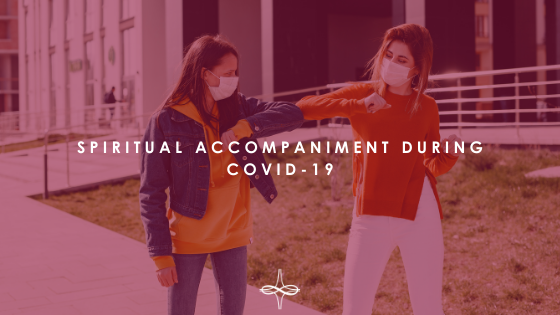
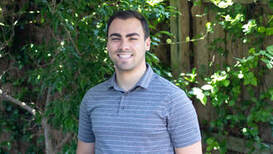
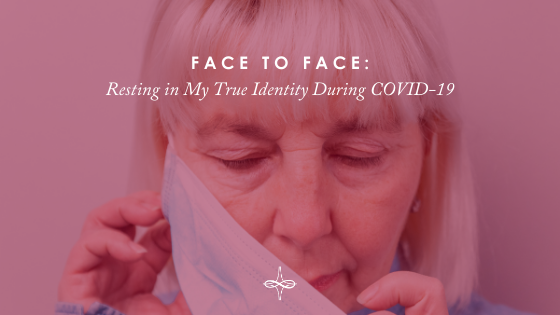



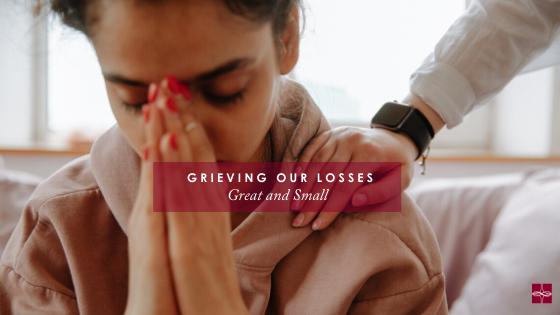
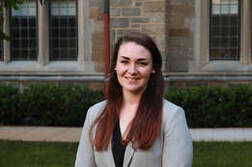



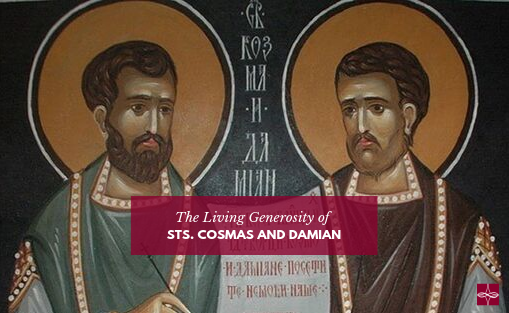

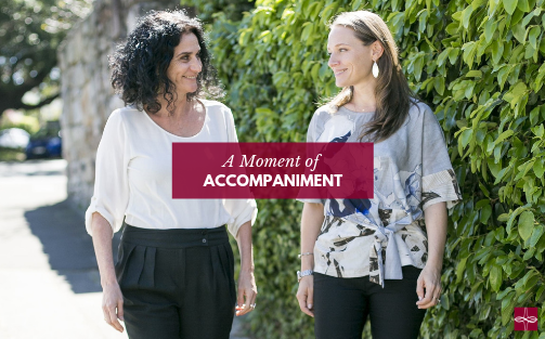

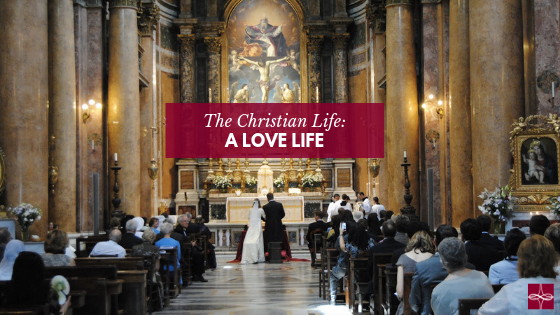




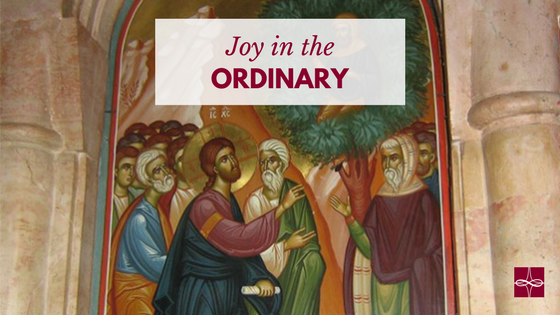



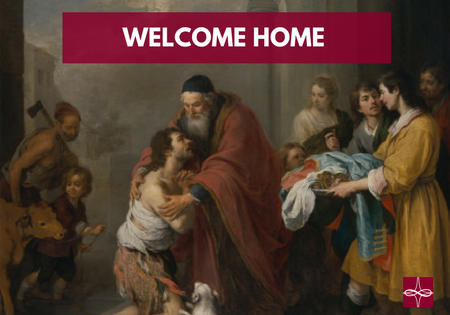

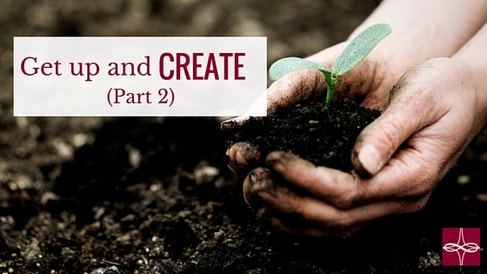

 RSS Feed
RSS Feed